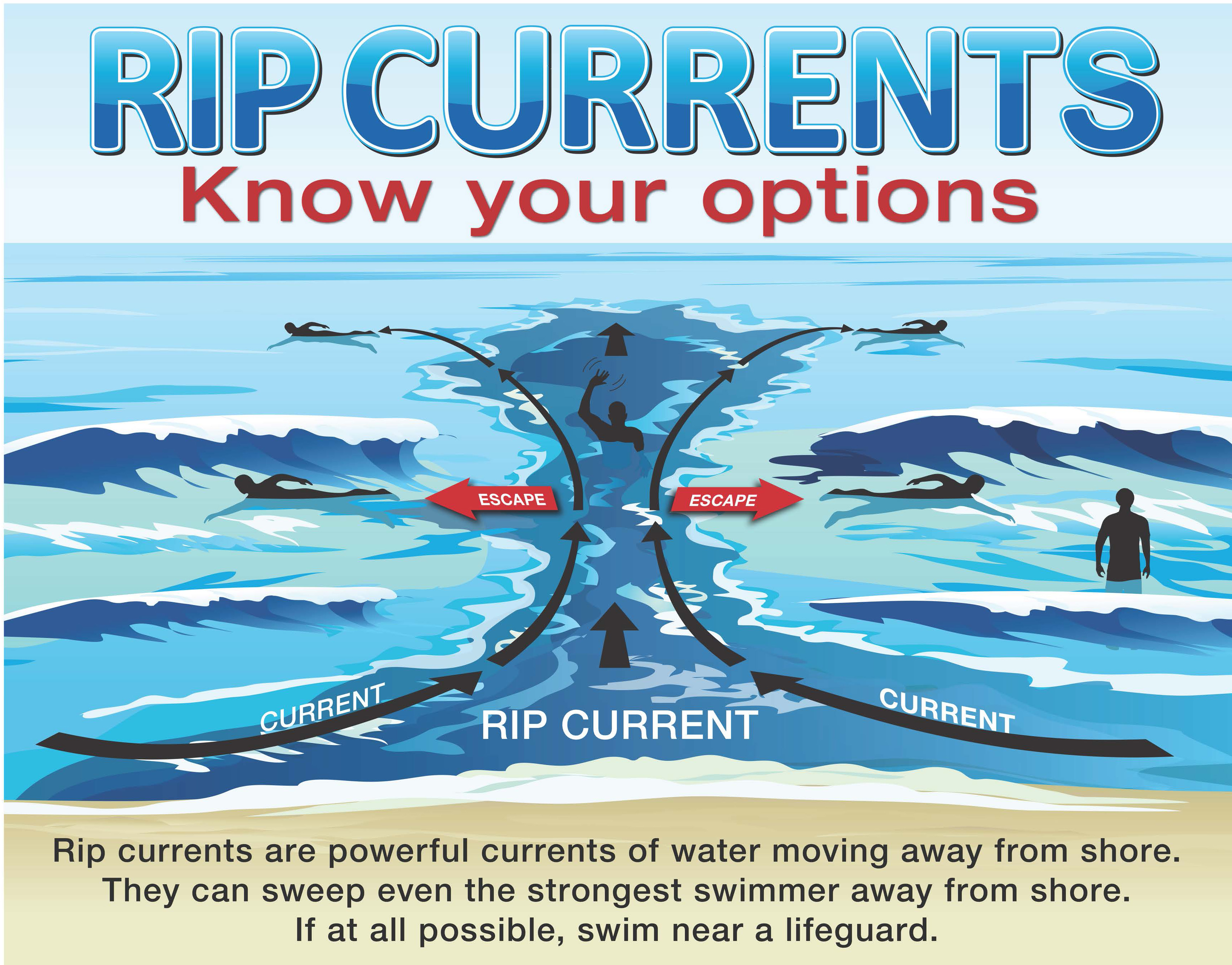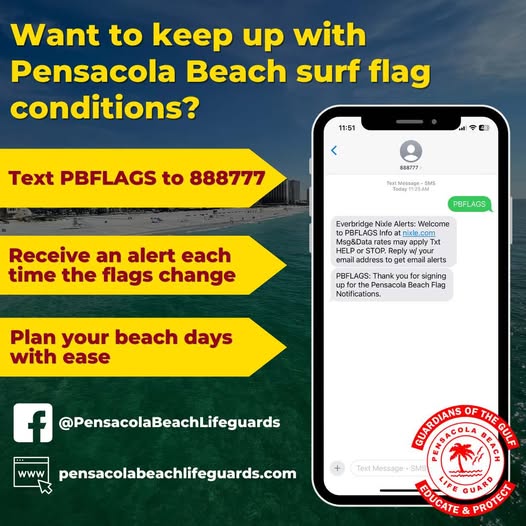
Search by Keyword
Search by Department
All Departments Administration Corrections Development Services Facilities Management Human Resources Information Technology Library Services Management and Budget Services Natural Resources Management Neighborhood and Human Services Parks and Recreation Public Safety Public Works Veterans Services Waste ServicesEscambia County Public Safety responded to over 40 water rescues Saturday, April 26 on Pensacola Beach and Perdido Key, highlighting the importance of water safety and rip current awareness when visiting local beaches.
The responses were a collaborative effort between Escambia County EMS, Emergency Communications, Escambia County Fire Rescue, and Pensacola Beach Lifeguards, with additional assistance from the Escambia County Sheriff’s Office and LifeFlight.
The water rescues highlighted below are just several of many examples of the dedicated rescue efforts of Escambia County first responders on Saturday, April 26:
Following these incidents, Escambia County reminds residents and visitors to Pensacola Beach and Perdido Key to consistently exercise water safety.
"While enjoying the beach, we always strongly encourage our visitors to swim in a lifeguarded area," said Water Safety Chief Dave Greenwood. "Staying near a lifeguard greatly increases your chances of achieving a fun, safe day at the beach. If you do find yourself in a rip current, do not panic. Conserve your energy by floating on your back until you are out of the current. When out of the current, swim sideways into shore."
Pensacola Beach Lifeguards towers are located at Casino Beach and will expand to Quietwater Beach and Public Access #2 in Perdido Key beginning Memorial Day weekend. Additionally, lifeguards provide a roving patrol along the eight-mile stretch of Pensacola Beach and all public access points in Perdido Key.
Additional Information:
Rip currents are powerful channels of water that are caused by breaks in the sandbar just offshore. Currents flowing away from the coast move fastest where the sandbar is reduced or not present and the water is deeper. They are the greatest danger to beach patrons and account for more than 80% of water rescues performed by lifeguards.
Escambia County strongly urges all beach patrons to remain near a lifeguard. Even when a green flag is flying, there is still a rip current risk.
If caught in a rip current, a swimmer can escape by swimming sideways to the direction the current is pulling them, or parallel to the shore. If the current is too strong, a swimmer should go with the flow of the current until it weakens, then swim back to shore at an angle away from the rip current. Click here to watch a video on rip currents from the Pensacola Beach Lifeguards.
The Pensacola Beach Lifeguards fly surf warning flags in several locations along Pensacola Beach and Perdido Key. The colored flag system measures the following surf risks:
Beach patrons are advised that the absence of a beach flag in their location does not assure water safety. For daily flag conditions and more information about Pensacola Beach Lifeguards, visit the Pensacola Beach Lifeguards page on MyEscambia.com or the Pensacola Beach Lifeguards Facebook. Click here to watch our lifeguards explain the flag system on Pensacola Beach.
The Pensacola Beach Lifeguards send out daily surf warning flag text alerts to update daily beach conditions. If beach conditions change throughout the day, a separate text is sent to reflect the change.
To sign up, text “PBFLAGS” TO 888-777.
Once registered, a confirmation text from Everbridge Nixle Alerts will be sent along with a welcome message from the Pensacola Beach Lifeguards. Respond to the text message with your email address to receive email alerts. Text "STOP" to 888-777 to discontinue receiving daily notifications.



The mission of Escambia County government is to provide efficient, responsive services that enhance our quality of life, meet common needs and promote a safe and healthy community.
Under Florida law, IP addresses and both the content of emails and email addresses are public records. If you do not want your IP address and the content of your email or your email address released in response to a public records request, do not send electronic mail to this entity. Instead, contact this office by phone or in person.

